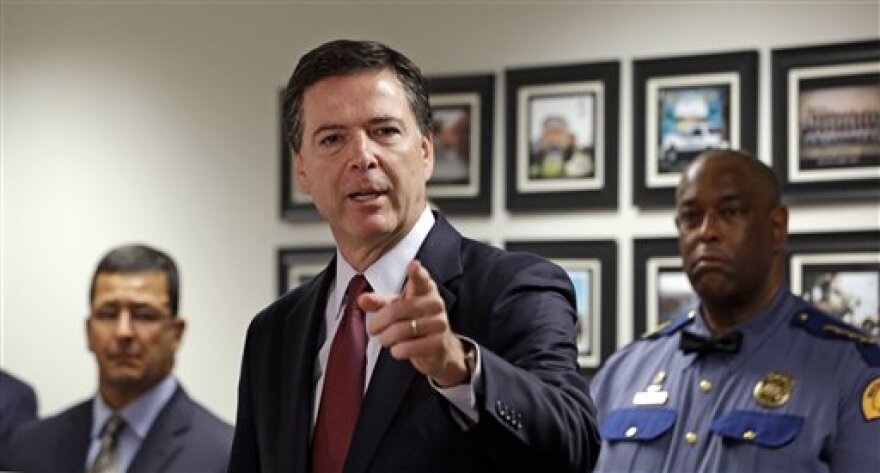FBI Director James Comey stood flanked by state and local law enforcement while speaking with the media at the bureau’s downtown office yesterday.
It was nearing the end of his workday, and nearing the end of a U.S. field office tour (we’re number 47 of 56 stops) since he took the job just over a year ago.Comey reiterated his concern over a recent decision by Apple and Google to encrypt smartphone data. The encryption will make it inaccessible to law enforcement, even with a court order.
“Lots of good, reasonable people are passionate about encryption and I get that. But I also want to make sure that wherever we go, we’ve thought through our ability in law enforcement, in cases of kids or violence, especially domestic violence cases, to get a court order to get the content of some device,” he said.
Comey said he’s a big fan of the rule of law. But he’s also a fan of the law with appropriate authority to be able to investigate serious crimes. “I’m very concerned,” he said. "I want to learn more.”
Comey told reporters that counter terrorism remains the FBI’s top priority. An effort, he said, that has become increasingly dependent on input from people. “I always tell folks, don’t ignore that hair standing up on the back of your neck. Tell us, we’ll check it out,” he said.
The terror threat is morphing, Comey said. The Internet provides all the training and propaganda necessary for what he calls homegrown violent extremists. "People no longer have to meet someone from Al Qaeda or ISIL," he said.
The bureau is in the process of hiring back more than a thousand agents, analysts and staff lost during last year’s budget sequester. Comey says some of those agents will end up here.
“I’ve pushed additional resources here. I’m don’t think I’m going to talk about what. But I’ve sent additional agent resources to the Seattle office. Because you’ve got a lot going on here,” he said.
Comey added that the bureau has a number of open cases in the region.


